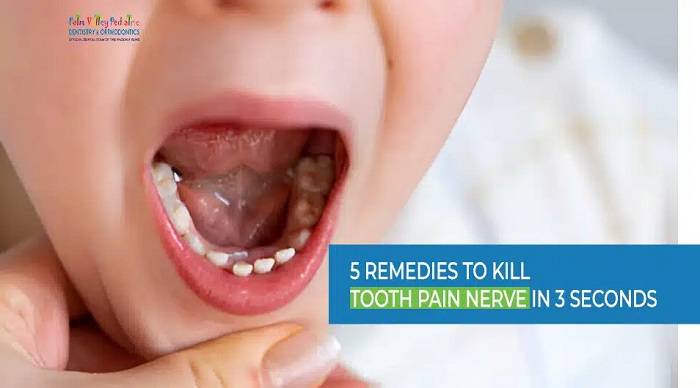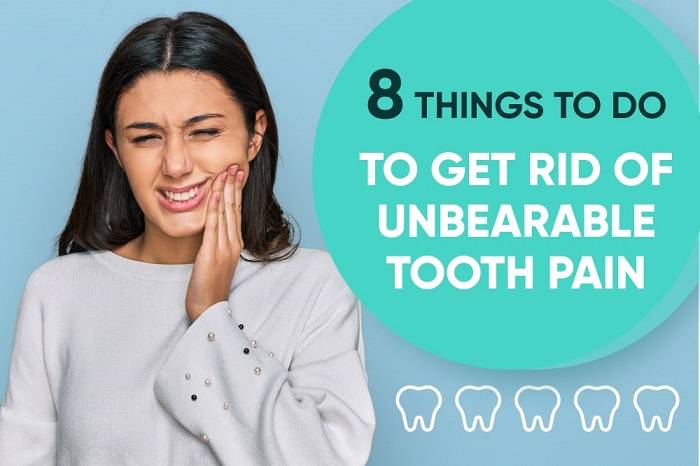Tooth pain is a common yet distressing issue that can significantly impact one’s quality of life. The notion of “killing a tooth pain nerve in 3 seconds permanently” is a provocative claim often encountered in various online forums and advertisements. While the idea of an instant and permanent solution is appealing, it is crucial to understand the realities and limitations surrounding tooth pain relief. This blog post delves into the various methods for addressing tooth pain, evaluates the feasibility of quick fixes, and provides guidance on effective and safe treatments.
Understanding Tooth Pain and Nerves
Causes of Tooth Pain
Tooth pain can stem from a variety of issues, each affecting the nerves within the tooth or surrounding structures:
- Tooth Decay: Cavities caused by bacterial activity can erode tooth enamel and reach the nerves inside the tooth, leading to pain.
- Dental Abscess: An infection at the root of the tooth can cause severe pain and swelling.
- Gum Disease: Infections and inflammation in the gums can contribute to tooth pain and discomfort.
- Cracked or Chipped Teeth: Physical damage to the tooth can expose nerves and cause pain.
- Bruxism: Grinding or clenching of teeth can put pressure on the nerves and lead to pain.
The Role of Tooth Nerves
The nerves inside the tooth are part of the dental pulp, which is responsible for sensation. When these nerves are exposed or irritated, they can cause significant pain:
- Dental Pulp: The dental pulp contains nerves and blood vessels that provide sensation and nourishment to the tooth.
- Nerve Exposure: Damage to the tooth or inflammation can expose these nerves, leading to sharp or throbbing pain.
Exploring Instant Pain Relief Methods
Over-the-Counter Pain Relievers
- Pain Relievers: Medications like ibuprofen (Advil) or acetaminophen (Tylenol) can provide temporary relief from tooth pain by reducing inflammation and blocking pain signals.
- Topical Anesthetics: Products containing benzocaine, such as Orajel, can numb the affected area for short-term relief.
Home Remedies
- Cold Compress: Applying a cold compress to the affected area can help reduce swelling and numb the pain temporarily.
- Salt Water Rinse: Rinsing the mouth with a warm saltwater solution can help alleviate discomfort and reduce inflammation.
- Clove Oil: Clove oil contains eugenol, a natural anesthetic that can provide temporary pain relief when applied to the affected area.
Dental Treatments
- Fillings and Crowns: Dentists can address tooth decay or damage with fillings or crowns, which can alleviate pain by protecting the tooth and restoring its function.
- Root Canals: For severe cases where the dental pulp is infected, a root canal procedure can remove the damaged nerve tissue and relieve pain.
The Myth of Instant and Permanent Solutions
Understanding the Limitations
The idea of killing a tooth pain nerve instantly and permanently is more myth than reality. The complexities of dental nerves and the underlying causes of tooth pain require a more nuanced approach:
- Permanent Solutions: True permanent relief from tooth pain involves addressing the underlying cause of the pain, such as treating tooth decay or infection, rather than merely numbing the area.
- Risks of Quick Fixes: Some methods that claim instant relief may not address the root cause of the problem and can lead to further complications if used improperly.
Why Quick Fixes Are Problematic
- Temporary Relief: Quick fixes often provide only temporary relief and do not resolve the underlying issue causing the pain.
- Potential Harm: Some methods, such as excessive use of topical anesthetics or home remedies, can cause additional harm or mask symptoms that need professional attention.
Seeking Professional Dental Care
Importance of Professional Diagnosis
Tooth pain should be evaluated by a dentist to determine the underlying cause and appropriate treatment:
- Comprehensive Examination: A dentist can conduct a thorough examination, including X-rays if necessary, to identify the cause of the pain and recommend the best course of action.
- Customized Treatment: Based on the diagnosis, the dentist can provide tailored treatments that address the specific issue, whether it’s a cavity, infection, or other dental problem.
Treatment Options
- Restorative Procedures: Treatments like fillings, crowns, or root canals can address the cause of tooth pain and provide long-term relief.
- Preventive Measures: Dentists can also offer advice on preventive measures to avoid future tooth pain, such as proper oral hygiene practices and dietary recommendations.
FAQs
Can I permanently stop tooth pain with over-the-counter medication?
Over-the-counter medications can provide temporary relief from tooth pain but do not address the underlying cause. Permanent relief requires professional dental treatment.
Are home remedies effective for long-term relief of tooth pain?
Home remedies may offer temporary relief but are not a substitute for professional dental care. They can help manage discomfort until you can see a dentist.
What are the risks of using topical anesthetics for tooth pain?
Excessive or improper use of topical anesthetics can lead to side effects and may not address the root cause of the pain. It is important to follow instructions and consult a dentist for persistent issues.
How can a dentist help with tooth pain?
A dentist can diagnose the cause of tooth pain and provide appropriate treatments, such as fillings, root canals, or other restorative procedures, to address the issue and alleviate pain.
When should I seek professional dental care for tooth pain?
You should seek professional dental care if you experience persistent or severe tooth pain, signs of infection, or if home remedies and over-the-counter medications do not provide adequate relief.
Related Post:
How Many Cups in a Pint? Understanding Measurement Conversions
Back to the Future 4: What We Know So Far and What to Expect
How Many Hours in a Year? Understanding Time Measurement
The notion of killing a tooth pain nerve in 3 seconds permanently is an alluring but unrealistic concept. While there are methods for temporarily alleviating tooth pain, true and lasting relief involves addressing the underlying cause of the pain through professional dental care. Understanding the limitations of quick fixes and seeking appropriate treatment is essential for maintaining dental health and well-being. If you experience persistent tooth pain, it’s important to consult with a dentist to explore effective and safe treatment options.




